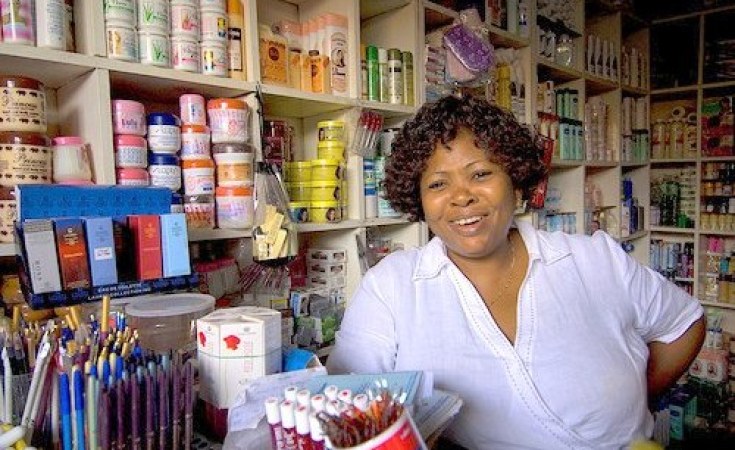Washington, DC — When Chioma Achebe wanted to buy shares on the Nigerian Stock Exchange, she didn't want to open an account with a local broker because the process could take days.
So she decided to create a website platform that would allow investors like herself to buy shares through their mobile phones and the Internet. She will launch the site, Afritrade, in July.
"Retail brokers are more affordable but over-reliant on human intervention," she says. "AfriTrade solves cost and time inefficiencies with a low-cost, high-quality mobile investing platform that clients can use to directly access the market."
Her story is similar to those of many entrepreneurs who have used the power of the Internet to make cumbersome tasks simpler. But she is also part of a generation of western entrepreneurs who are attracted to the unique opportunities in Africa.
High levels of consumer spending, low inflation, and a growing middle class have made the continent more desirable than it has ever been. McKinsey, the management consultancy firm, estimates that consumer spending in Africa could grow to U.S. $1.4 trillion by 2020, up from $860 billion in 2008.
Earlier this month, 200 people braved freezing temperatures on a cold Saturday morning to hear entrepreneurs from the African diaspora pitch their startups at an event at the World Bank in Washington, D.C.
The "Diaspora Demo Day" saw several early-stage companies seeking funding for their African-based businesses. The entrepreneurs presented proposals for sectors which varied from agriculture and financial services to transportation.
Consider Nour Drissi, who runs Loue I Voiture an online platform that allows tourists in Morocco to book rental cars at affordable prices.
Drissi, who already runs the car rental platform Book1car.com, launched the Casablanca-based company after noticing that she was getting a lot of interest from customers and car rental companies in Morocco.
But doing business in Africa can be daunting for a first-time entrepreneur from outside the continent. Red tape and poorly-trained staff are some of the challenges an entrepreneur might face. And then there's inertia.
Richard Pembroke, a British entrepreneur who started his first African business in South Africa and has done business in Nigeria, says he did not anticipate the challenge of dealing with government officials.
"Government employees and state officials... They are quite transient. They change regularly... They change with the personnel at the top. Therefore they will look at a 10-year agricultural project and it's difficult for them to get excited because the chances are they're not going to be there," says Pembroke, who runs MatchDeck, an online platform that connects African entrepreneurs to western investors.
Still, Pembroke sees opportunities in consumer-focused businesses and those which operate in the agricultural sector.
"With the pressure of food production and growth in the population, I suspect that agricultural and food production will be the main sectors that run most dramatically in the right direction over the next few years," he adds.
His optimism is shared by Jehiel Oliver, an entrepreneur who started Hello Tractor, a company that allows small farmers in sub-Saharan Africa to rent affordable tractors through their mobile phones.
When Oliver launched the company in Nigeria this year, his biggest problem was finding business partners who shared his long-term approach. He had to bypass partnerships with state governments which were more focused on making a quick profit than on the interests of farmers.
Doing business in Africa is easier if the entrepreneur takes a long term approach, he says.
"A lot of times people prioritize things like a government relationship or a relationship with a well-capitalized entrepreneur. For us, our biggest investors are our customers and we think we have a product that is affordable and attractive to small farmers...That insulates us from a lot of the challenges."
Emmanuel Olaoye is a reporter for Thomson Reuters in Washington, DC.


